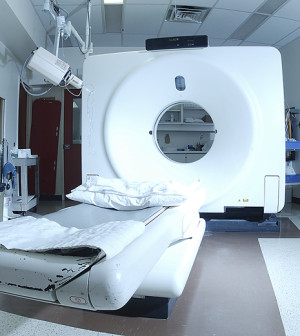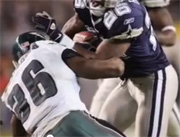- Could Your Grocery Store Meat Be Causing Recurring UTIs?
- Are You Making This Expensive Thermostat Error This Winter?
- Recognizing the Signs of Hypothyroidism
- 10 Strategies to Overcome Insomnia
- Could Artificial Sweeteners Be Aging the Brain Faster?
- Techniques for Soothing Your Nervous System
- Does the Water in Your House Smell Funny? Here’s Why
- Can a Daily Dose of Apple Cider Vinegar Actually Aid Weight Loss?
- 6 Health Beverages That Can Actually Spike Your Blood Sugar
- Treatment Options for Social Anxiety Disorder
Doctors Need to Protect Athletes From Concussion Risk: Neurologists


Safeguarding athletes from concussion is a moral duty for doctors, according to the largest neurologists’ group in the United States.
In a newly released position statement, the American Academy of Neurology (AAN) said that doctors have an ethical obligation to educate and protect athletes from concussion in order to preserve their future mental and physical health.
“With nearly 4 million sports-related concussions in the U.S. each year, it is imperative doctors are educated and protect these athletes who may have sustained a concussion,” statement lead author Dr. Matthew Kirschen, a neurologist with The Children’s Hospital of Philadelphia, said in an AAN news release.
“Concussions can have devastating effects such as short-term impairments in athletes’ cognitive and athletic performance. Repeat concussions have been linked to long-term impairments in brain function, such as problems with learning, memory and behavior,” he explained.
If an athlete has suffered a concussion, doctors should ignore pressure from players, coaches or parents and give the athlete the go-ahead to resume playing only if he or she is medically ready.
Doctors must also alert athletes and their families about the risk of concussion in any sports they are involved in, the statement said.
The statement appears in the July 9 online issue of the journal Neurology, ahead of an AAN sports concussion conference being held in Chicago July 11-13.
The AAN also called for wider use of baseline mental testing of athletes, the addition of concussion evaluation and management training to neurology residency programs, and the creation of a national concussion registry with mandatory reporting.
The statement also said the doctors who care for athletes who’ve suffered a concussion should have the training and experience to recognize and evaluate both the presence and severity of concussion.
“These strategies could help identify the threshold at which the number and severity of head injuries leads to irreversible brain injury. They may also help to clarify how concussion risk varies with factors like age, gender, puberty stage and ethnicity so athletes and parents can make informed decisions about playing contact sports,” Kirschen said.
More information
The U.S. National Library of Medicine has more about concussion.
Source: HealthDay
Copyright © 2026 HealthDay. All rights reserved.










